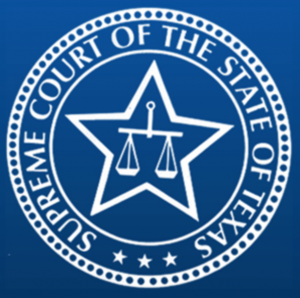 The Supreme Court of Texas recently issued an opinion in a premises liability case involving teenage church volunteers who suffered injuries in a fire. The church hosted an annual festival featuring rides, games, music, and vendors—the church profits from the festival from receiving a portion of the sales from vendors and sales. The 4-H Leaders Association (4-H) rented a booth at the festival to sell various food items. 4-H paid the church to rent the booth, but the church did not receive any profits from the booth’s sales. According to the record, a fire broke out in the booth, and five volunteers, four of whom were teenagers, suffered injuries in the fire.
The Supreme Court of Texas recently issued an opinion in a premises liability case involving teenage church volunteers who suffered injuries in a fire. The church hosted an annual festival featuring rides, games, music, and vendors—the church profits from the festival from receiving a portion of the sales from vendors and sales. The 4-H Leaders Association (4-H) rented a booth at the festival to sell various food items. 4-H paid the church to rent the booth, but the church did not receive any profits from the booth’s sales. According to the record, a fire broke out in the booth, and five volunteers, four of whom were teenagers, suffered injuries in the fire.
The trial primarily hinged on the cause of the fire, the plaintiffs arguing that it stemmed from a defective propane tank, while 4-H and the church argued that it was from one of the volunteers spilling ice into a fryer. The trial court found in favor of the defendants, and the appellate court affirmed in part and reversed in part. The appellate court found that the plaintiffs did not have a claim against 4-H but remanded the case against the church for a new trial.
Under Texas law, a property owner or occupier’s duty to someone on their property depends on the person’s status. Typically, property owners owe invitees a duty to “exercise reasonable care to protect against unreasonable risk of harm,” that the owner knew or should have known through reasonable diligence. Texas property owners owe licensees a lesser duty to use ordinary care to warn of or make a dangerous condition, that the owner knows of, safe.
These cases often hinge on the status of the visitor. Invitees are those that enter a property with the owner’s knowledge for the mutual benefit of both parties. Licensees are those that go onto the owner’s property with express or implied permission but not express or implied invitation.
In this case, the families contended that the volunteers were invitees. The court of appeals agreed, reasoning that there was no distinction between the Club and the Club’s volunteers. Therefore, because the 4-H signed a contract that mutually benefited themselves and the church, the volunteers were, by extension, invitees. However, the Court found that the volunteers’ presence at the booth did not provide the church with any benefit. In response, the families argued that the volunteers participated in the festival and benefited the church by spending money. However, the Court found that a person’s status is determined at the time of the injury. Therefore, the Court concluded that the volunteers were licensees, and they did not meet their evidentiary burden establishing the church’s negligence.
Have You Suffered Injuries on Another’s Property?
If you or someone you love has suffered injuries or died in any type of accident, contact the Texas premises liability attorneys at Carabin Shaw. At our office, the San Antonio, personal injury attorneys have over 28 years of experience representing those who have suffered damages because of another’s negligence. Our compassionate and dedicated attorneys handle Texas accident claims stemming from motor vehicle accidents, premises liability, defective products, and medical malpractice. We have recovered significant amounts of compensation on behalf of injury victims. Contact our office at 800-862-1260 to schedule a free initial consultation with an attorney on our team.
 Texas Injury Lawyers Blog
Texas Injury Lawyers Blog

